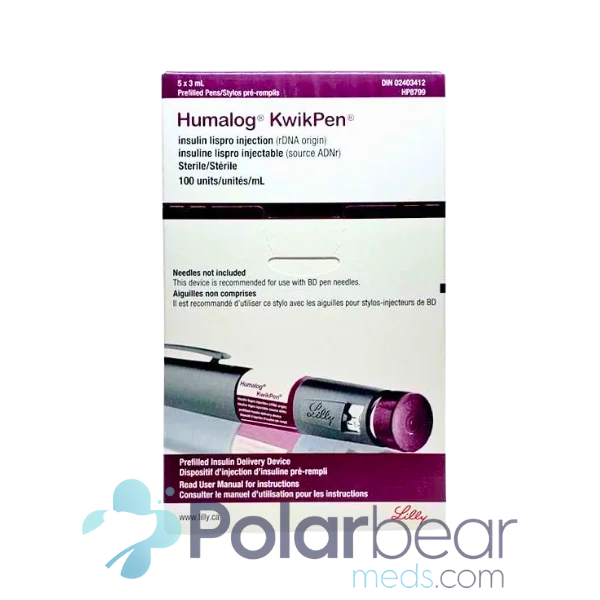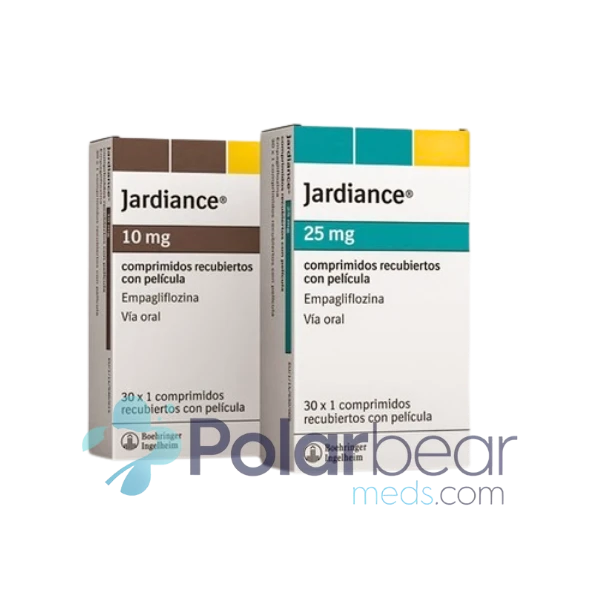
Basaglar Vs Ozempic: Key Differences in Insulin Treatments
HOME | DIABETES EDUCATION | BASAGLAR VS OZEMPIC: KEY DIFFERENCES IN INSULIN TREATMENTS
While considering your diabetes management options, you might find yourself weighing the benefits of Basaglar against those of Ozempic. Basaglar offers a consistent insulin release, making it a solid choice for maintaining stable blood sugar levels, while Ozempic not only helps lower those levels but also supports weight loss and cardiovascular health.
Each has its unique characteristics, from administration frequency to side effects, which can greatly impact your treatment plan. Understanding these differences could be essential as you navigate your options and determine what might suit your needs best. What might this mean for your diabetes odyssey?
Key Takeaways
- Basaglar is a long-acting insulin requiring daily injections, while Ozempic is a GLP-1 agonist administered weekly.
- Ozempic provides a greater reduction in HbA1c levels (1.4%-1.6%) compared to Basaglar (0.35%).
- Weight management differs significantly; Basaglar can cause weight gain, whereas Ozempic may promote weight loss.
- Each medication has distinct side effects; Basaglar is linked to hypoglycemia and weight gain, while Ozempic can cause nausea and has cardiovascular benefits.
- Basaglar is generally more cost-effective than Ozempic, with potential discounts available leading to lower out-of-pocket expenses.
Key Differences Between Basaglar and Ozempic Explained
Understanding the key differences between Basaglar and Ozempic can empower you to choose wisely about diabetes management.
Both medications help control blood sugar levels, but they operate through distinct mechanisms. Basaglar is a long-acting insulin (insulin glargine) that provides a steady release of insulin over 24 hours. It’s suitable for both type 1 and type 2 diabetes, helping to mimic your body’s natural insulin secretion.
On the other hand, Ozempic (semaglutide) is a GLP-1 receptor agonist, primarily used for type 2 diabetes. It boosts insulin production as blood sugar rises, decreases glucose production in the liver, and slows gastric emptying to reduce post-meal spikes in blood sugar levels.
In terms of administration, Basaglar requires a daily injection, while Ozempic is delivered weekly, which might suit your lifestyle better.
Furthermore, both have side effects: Basaglar can lead to hypoglycemia, especially if you skip meals, while Ozempic may cause gastrointestinal issues.
These differences highlight how each treatment targets diabetes management, making it essential for you to reflect on your specific needs and consult your healthcare provider for tailored advice.
Basaglar vs. Ozempic: Diabetes Treatment Comparison
While choosing between Basaglar and Ozempic for diabetes management, which medication aligns better with your lifestyle and health goals? Understanding their differences can help you make an informed choice:
- Basaglar is a long-acting insulin suitable for both Type 1 and Type 2 diabetes, providing steady blood sugar control for up to 24 hours.
- Ozempic, on the other hand, is a GLP-1 receptor agonist designed for adults with Type 2 diabetes, promoting insulin release while reducing glucose production in the liver.
- Basaglar requires daily injections, while Ozempic is administered once a week, which may fit better into a busy schedule.
- Both medications can affect your weight differently: Basaglar may lead to weight gain, whereas Ozempic could help with weight loss.
When considering Basaglar and Ozempic, think about your specific needs regarding blood sugar levels, the potential risk of hypoglycemia, and how each option fits into your daily routine.
Discuss these factors with your healthcare provider to determine the best treatment plan tailored to your diabetes management.
Which Insulin Medication Lowers Blood Sugar Better: Basaglar or Ozempic?
While evaluating which medication lowers blood sugar more effectively, Basaglar and Ozempic present distinct advantages based on their mechanisms and clinical outcomes.
Basaglar, which contains insulin glargine, is a long-acting insulin that gives you a steady release of insulin over a 24-hour period. This helps keep your blood sugar levels stable throughout the day. It typically lowers your HbA1c levels by around 0.35%. However, it’s often used with other diabetes medications for ideal results.
On the other hand, Ozempic is particularly effective for type 2 diabetes. This GLP-1 receptor agonist lowers blood sugar levels in several ways, including increasing insulin production when needed, reducing glucose output from the liver, and slowing gastric emptying.
Clinical trials show that Ozempic can lower HbA1c levels by 1.4% to 1.6%, greatly improving blood sugar control. It also tends to promote weight loss, a beneficial effect for many people with type 2 diabetes.
Can Basaglar and Ozempic Be Used Together?
Combining Basaglar (insulin glargine) and Ozempic (semaglutide) can offer better blood sugar control for patients managing Type 2 diabetes. This combination can be especially beneficial for those who need improved glucose management beyond what either medication can provide alone.
Here are some important considerations if you’re thinking about using both:
- Monitoring Blood Sugar: You should check your blood sugar levels more frequently, since both medications lower blood sugar, which raises hypoglycemia risks.
- Dosage Adjustments: Your healthcare provider may suggest adjusting the dosage of either Basaglar or Ozempic to minimize this risk while still achieving ideal blood sugar control.
- Clinical Guidelines: Combining a GLP-1 receptor agonist similar to Ozempic with insulin is often recommended for patients who don’t achieve sufficient control with insulin alone or have conditions like cardiovascular disease.
- Potential Risks: Be aware that while Basaglar can lead to weight gain, Ozempic might cause gastrointestinal issues.
Always consult your healthcare provider for tailored advice regarding your diabetes management plan, as individual needs can vary greatly.
Basaglar vs. Ozempic: Side Effects Compared
Managing diabetes effectively often involves steering through potential side effects of medications. Upon comparing Basaglar (insulin glargine) and Ozempic (semaglutide), you’ll notice distinct side effects that can impact your treatment choice.
With Basaglar, common side effects include hypoglycemia, characterized by low blood sugar symptoms such as dizziness and confusion. Weight gain is another concern, since insulin therapy often promotes fat storage. You might also experience injection site reactions, such as pain or swelling.
Serious side effects can include severe hypoglycemia, allergic reactions, and an increased risk of heart failure with certain diabetes medications.
On the other hand, Ozempic is more likely to cause gastrointestinal issues such as nausea, vomiting, and diarrhea. While it can also lead to hypoglycemia, this risk is generally lower. Remarkably, Ozempic may help with weight loss, which can be beneficial for many patients.
However, it’s important to be aware of serious side effects such as pancreatitis and potential thyroid tumors. Always discuss these side effects with your healthcare provider to determine the most suitable diabetes medication for your needs.
How Basaglar Works Differently Than Ozempic
Understanding how Basaglar works differently than Ozempic can greatly impact your treatment choices for diabetes. Both medications target blood sugar management, but they take distinct approaches.
- Basaglar (insulin glargine): This long-acting insulin guarantees a steady release of insulin over 24 hours, helping to control your blood sugar levels consistently.
- Ozempic (semaglutide): This GLP-1 receptor agonist improves your body’s ability to lower blood sugar through several mechanisms, including stimulating insulin secretion and slowing gastric emptying.
- Administration: Basaglar is typically administered via subcutaneous injection once daily, while Ozempic requires a less frequent weekly injection.
- Hypoglycemia risk: Basaglar carries a significant risk of hypoglycemia, especially if meals are missed or doses are excessively high, requiring careful monitoring.
Basaglar or Ozempic: Better for Weight Loss?
In regards to weight loss, Ozempic often stands out as the more effective option compared to Basaglar.
While Basaglar is an insulin therapy primarily used to manage blood sugar in diabetes, it can lead to weight gain in the form of a side effect. This weight gain occurs because insulin promotes the storage of glucose in the form of fat, which might make weight management challenging for some individuals.
Weight loss wasn’t reported as a side effect of Basaglar during clinical studies. However, weight gain is one of the most common side effects caused by Basaglar.
In a clinical studyTrusted Source, people with type 1 diabetes who took Basaglar gained up to 0.36 kg (less than 1 pound [lb]) over 6 months of treatment. They gained about 0.71 kg (1.5 lbs) over 1 year of using the drug. In another clinical studyTrusted Source, people with type 2 diabetes who took Basaglar gained about 1.8 kg (4 lbs) over 6 months of treatment.
In fact, weight gain is a common side effect of all insulins, not just Basaglar. It’s actually a normal, healthy process because insulin helps your body store sugar. And your body uses sugar for energy at a later time. The stored sugar can add to weight gain over time.
If you’re concerned about weight gain while using Basaglar talk with your doctor. They can suggest diet and exercise tips to help you maintain a healthy weight.
https://www.medicalnewstoday.com/articles/326655#side-effects
On the other hand, Ozempic is a GLP-1 receptor agonist that has demonstrated significant weight loss benefits for many users.
It works by reducing appetite and slowing gastric emptying, allowing for better control over food intake.
Studies show that patients with type 2 diabetes using Ozempic often experience notable weight loss, making it advantageous for those who seek to manage their weight alongside their blood sugar levels.
If you’re looking for a diabetes medication that actively helps you shed pounds, Ozempic is likely your best choice.
In contrast, if you need a solution focused solely on blood sugar control and aren’t concerned about potential weight gain, Basaglar may suffice for your treatment plan.
Cost Comparison: Is Basaglar Cheaper Than Ozempic?
In regards to costs, Basaglar is generally the more affordable option compared to Ozempic. As you look at the price differences, it becomes clear why many people lean towards Basaglar for their diabetes management.
- Average Cost: Basaglar costs about $353 for a 15 mL supply, while Ozempic can reach $900 for a 4-week supply.
- Discount Programs: Basaglar offers savings programs that can reduce costs to $25 to $35 per month for eligible patients.
- Availability: Basaglar has generic options starting around $128.93 for 10 mL, making it quite accessible.
- Out-of-Pocket: Ozempic’s out-of-pocket expenses might still be significant despite insurance, making Basaglar a more budget-friendly choice.
Ultimately, if you’re considering medications to manage your blood sugar levels, the cost comparison shows that Basaglar typically offers a more economical path.
With various discount programs, it might be easier for you to afford this insulin option than Ozempic. Always consult with your healthcare provider to identify the best treatment for your situation.
Basaglar vs. Ozempic: Heart Health Impact Differences
While considering heart health impacts, comparing Basaglar and Ozempic reveals significant differences that may influence your treatment choice.
Basaglar, an insulin therapy, may increase the risk of heart failure, particularly in combination with certain medications similar to thiazolidinediones. For individuals with a history of heart conditions, this risk requires careful monitoring.
Moreover, severe hypoglycemia associated with Basaglar can stress the heart, leading to potential cardiovascular complications.
On the other hand, Ozempic has demonstrated positive cardiovascular benefits. Studies show that it can lower the risk of major cardiovascular events, such as heart attacks and strokes, for patients with Type 2 diabetes.
In addition, Ozempic promotes weight loss, which is vital for improving heart health and reducing cardiovascular risks.
Which Works Faster: Basaglar or Ozempic?
Understanding which medication works faster can be essential for effective diabetes management. At the time of considering Basaglar and Ozempic, here’s what you should know about their speed of action:
- Basaglar (Insulin Glargine): Starts working within 1 to 2 hours and reaches its peak effect around 6 to 8 hours.
- Ozempic (Semaglutide): Begins lowering blood sugar within 1 week of starting treatment, but ideal control may take 8 weeks or longer.
- Dosage: Basaglar is administered once daily, while Ozempic is given weekly.
- Type of Action: Basaglar delivers a steady release of insulin over a 24-hour period, while Ozempic works more gradually through multiple actions.
Basaglar vs. Ozempic: Long-Term Use Differences
At the point it’s time to evaluate long-term use of Basaglar and Ozempic, you’ll find notable differences that can considerably impact your diabetes management.
Basaglar, an insulin glargine, is a long-acting insulin effective for both Type 1 and Type 2 diabetes. It’s typically taken daily, providing a steady insulin release. However, long-term use may lead to weight gain due to insulin’s fat-storing properties.
On the other hand, Ozempic is specifically for adults with Type 2 diabetes and is taken weekly. One of its major benefits is weight management; many users experience weight loss, which can be particularly helpful if you’re overweight. Additionally, Ozempic provides cardiovascular benefits, showing a reduced risk of heart-related events in users with Type 2 diabetes.
While both medications require regular monitoring, Basaglar focuses more on blood sugar control without specific cardiovascular effects, whereas Ozempic emphasizes weight control and overall heart health.
Understanding these differences can help you make educated choices about your diabetes treatment plan, ensuring you’re choosing the best option for your long-term health.
Dosage Differences Explained: Basaglar vs. Ozempic
While managing diabetes, the differences in dosing between Basaglar and Ozempic can greatly influence your treatment plan. Understanding these dosage differences helps you choose the right medication for your needs.
- Basaglar is a long-acting insulin, administered via subcutaneous injection once daily.
- Typical initial dosages for Type 1 diabetes range from 0.4 to 1 unit/kg, adjusted based on your weight.
- For Type 2 diabetes, starting with 0.2 units/kg or up to 10 units daily is common.
In contrast, Ozempic is a GLP-1 receptor agonist. You receive this medication through a subcutaneous injection but only once a week.
- The initial dosage starts at 0.25 mg weekly, potentially increasing to 2 mg based on your response.
- Ozempic dosages focus on milligrams, while Basaglar uses insulin units, which is a key difference in their administration.
Who Should Choose Basaglar Over Ozempic?
While determining whether to select Basaglar over Ozempic, it’s vital to evaluate your specific diabetes type and treatment needs.
If you have type 1 diabetes, Basaglar, which contains insulin glargine, is the appropriate choice since it provides essential basal insulin. In contrast, Ozempic isn’t approved for managing type 1 diabetes.
Patients requiring insulin therapy may also prefer Basaglar, especially if they haven’t achieved good blood sugar control with oral medications or GLP-1 receptor agonists.
Furthermore, if you’re concerned about weight gain, Basaglar can be beneficial since it typically leads to less weight fluctuation compared to Ozempic, which can promote weight loss but might also lead to weight gain in some cases.
For those who prefer daily injections, Basaglar could be more suitable, accommodating your routine better than Ozempic’s weekly dosing.
Additionally, if you have no history of cardiovascular disease, choosing Basaglar can avoid any potential drug interactions associated with Ozempic.
Always consult your healthcare provider to determine the most fitting treatment plan for your individual health situation.
A1C Level Effects: Basaglar vs. Ozempic
Managing A1C levels effectively is essential for anyone living with diabetes, and understanding the differences between Basaglar and Ozempic can greatly influence your treatment choice.
Both medications help control blood sugar, but they’ve distinct impacts on A1C reduction:
- Basaglar (Insulin Glargine): Typically reduces A1C by about 0.35%, primarily for both Type 1 and Type 2 diabetes.
- Ozempic (Semaglutide): Generally achieves a more substantial A1C reduction, ranging from 1.4% to 1.6%, making it particularly effective for Type 2 diabetes.
- Mechanism of Action: Basaglar provides a steady release of insulin, while Ozempic boosts insulin production in response to meals and slows gastric emptying.
- Weight Considerations: Ozempic can lead to weight loss, which may be beneficial for those managing Type 2 diabetes and obesity.
When considering your options, it’s important to consult your healthcare provider.
They can tailor your treatment plan based on individual factors, ensuring you choose the medication that aligns best with your diabetes management goals.
Both medications have unique benefits, so understanding their effects on A1C levels is significant.
Frequently Asked Questions
Can Basaglar and Ozempic Be Used in Combination Therapies?
Yes, Basaglar and Ozempic can be used together. Talk to your doctor to create a treatment plan that helps control your diabetes and reduces risks.
What Lifestyle Changes Should Accompany Basaglar or Ozempic Treatment?
To get the best results from Basaglar or Ozempic, focus on these key things: balanced diet, regular exercise, blood sugar monitoring, stress management, and healthy weight. These changes really help the treatment work better.
Are There Specific Dietary Recommendations While Taking These Medications?
While taking these medications, focus on balanced meals. Include fiber and limit sugar. This can help control blood sugar and boost treatment.
How Do Basaglar and Ozempic Impact Mental Health or Mood?
Basaglar and Ozempic can impact mental health. Basaglar may cause mood swings from blood sugar changes. Ozempic can lead to frustration due to side effects like nausea. It’s important to keep track of your feelings while taking these medications.
What Should Patients Do if They Miss a Dose of Basaglar or Ozempic?
If you miss a dose of Basaglar or Ozempic, take it as soon as you remember. If it’s almost time for your next dose, skip the missed one. Don’t take two doses at once. Just go back to your usual schedule.
Choose your platform, share this story!
Facebook Twitter LinkedIn Pinterest






















